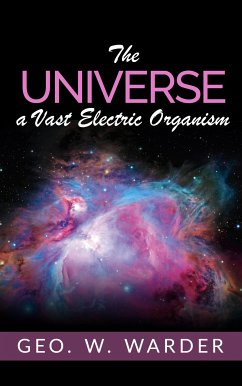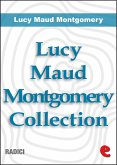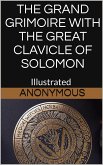George Woodward Warder (1848–1907) was a poet, philosopher and author from Missouri, USA. Warder also developed his own cosmology theory, he authored The New Cosmogony (1898), Invisible Light, or Electric Theory of Creation (1899), The Cities of the Sun (1901), The Stairway to the Stars (1902), The Universe a Vast Electric Organism (1903). Warder believed that the universe was an electrical creation and that electricity plays a more important role in the universe than is generally accepted, his views can be seen as a predecessor to plasma cosmology
Bitte wählen Sie Ihr Anliegen aus.
Rechnungen
Retourenschein anfordern
Bestellstatus
Storno







![100 Books You Must Read Before You Die - volume 2 [newly updated] [Ulysses, Moby Dick, Ivanhoe, War and Peace, Mrs. Dalloway, Of Time and the River, etc] (Book House Publishing) (eBook, ePUB) 100 Books You Must Read Before You Die - volume 2 [newly updated] [Ulysses, Moby Dick, Ivanhoe, War and Peace, Mrs. Dalloway, Of Time and the River, etc] (Book House Publishing) (eBook, ePUB)](https://bilder.buecher.de/produkte/47/47720/47720335m.jpg)

![100 Books You Must Read Before You Die - volume 1 [newly updated] [The Great Gatsby, Jane Eyre, Wuthering Heights, The Count of Monte Cristo, Les Misérables, etc] (Book House Publishing) (eBook, ePUB) 100 Books You Must Read Before You Die - volume 1 [newly updated] [The Great Gatsby, Jane Eyre, Wuthering Heights, The Count of Monte Cristo, Les Misérables, etc] (Book House Publishing) (eBook, ePUB)](https://bilder.buecher.de/produkte/47/47720/47720067m.jpg)